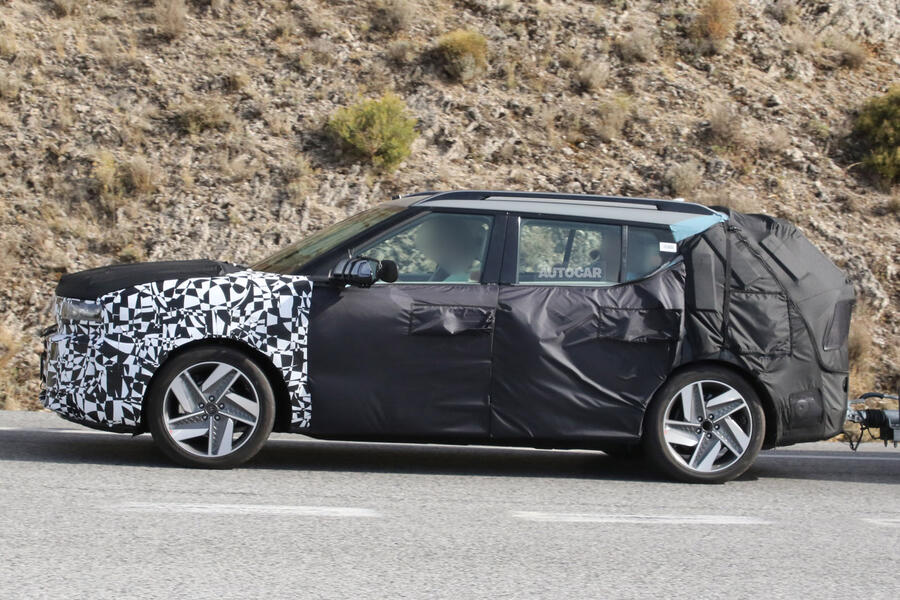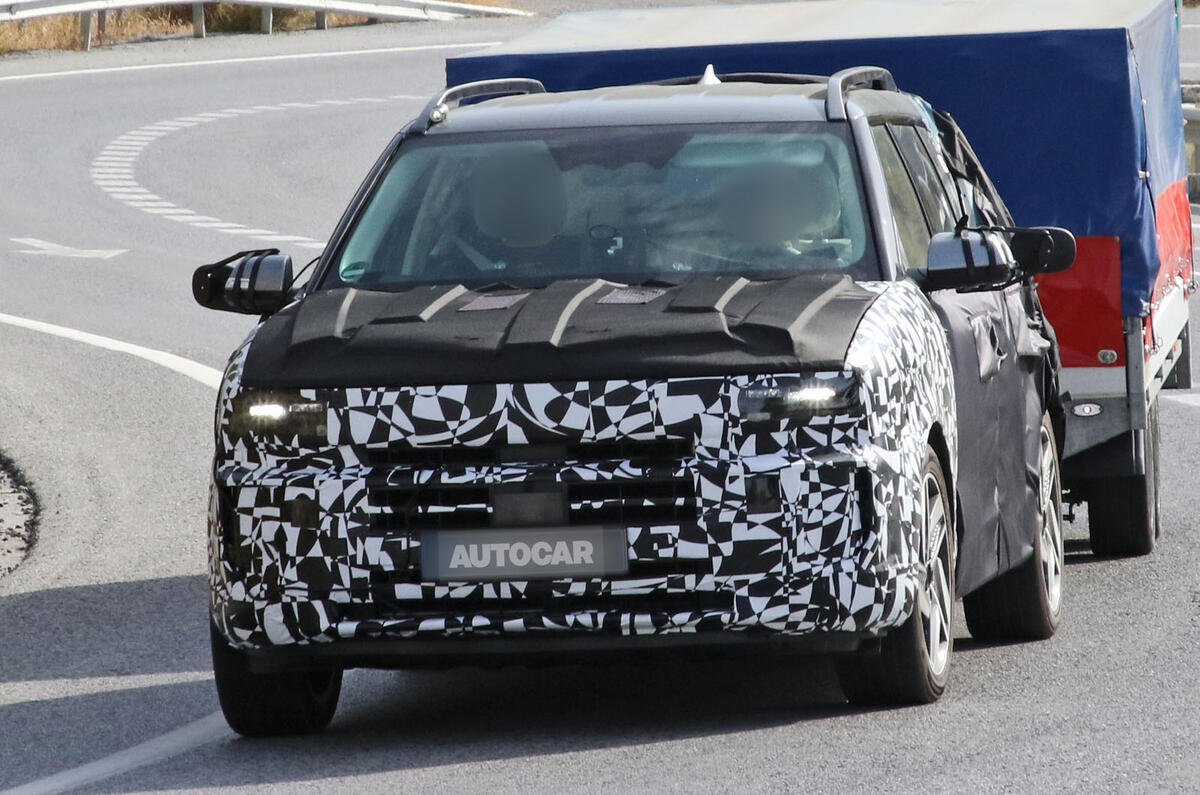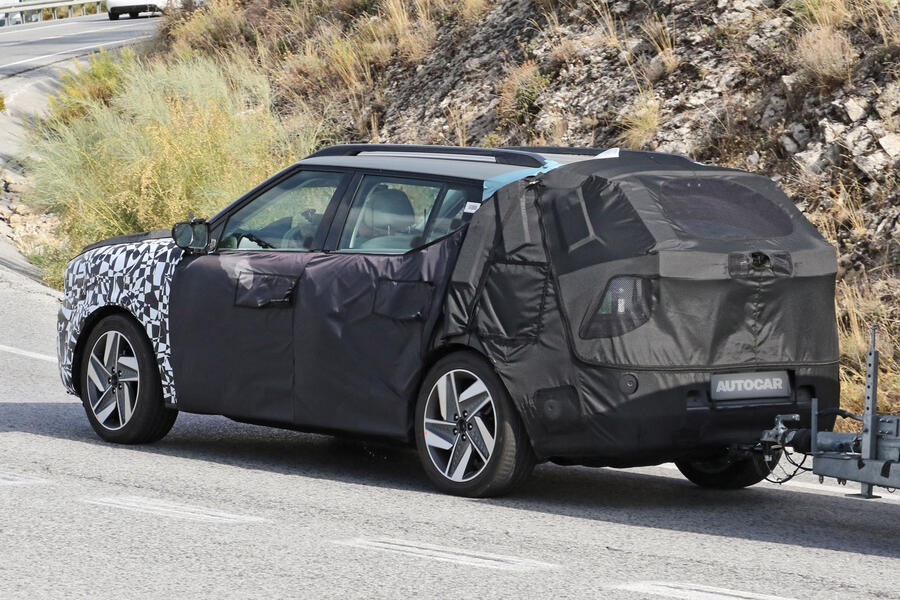Hyundai is preparing to radically reinvent its hydrogen-fuelled Nexo SUV for a second generation as it doubles down on the viability of fuel cell powertrains.
A prototype for the new FCEV has been spotted testing on public roads in Europe, revealing it to be a radical departure from the styling of the existing model.
It follows in the footsteps of the combustion-engined Santa Fe in becoming much boxier, with a bluff front end and pixel-like headlights. It sits closer to the ground, however, and lacks its bigger sibling’s swollen arches.
This prototype is missing its rear light housings, but others have been spotted in Korea with distinctive plus-shaped covers.
Under the skin, the Mk2 Nexo is expected to represent a significant upgrade on the original. That car features three 52-litre hydrogen tanks, a 95kW fuel cell stack and a 1.56kWh battery, yielding a range of 414 miles between fill-ups.
As previously reported by Autocar, the stack will be replaced by a new 100kW unit that's some 30% smaller and will last 50-100% longer. Hyundai claimed the old stack was capable of 5000 hours or 100,000 miles of use.
Other updates – likely to comprise a more efficient battery and motor – will also help in boosting the Nexo’s range to the 500-mile figure reported by Korean media.
Range will be instrumental in the Nexo’s success, given the limited number of hydrogen filling stations across the globe. In the UK, just six stations are currently operational.
Affordability will also be a key consideration: the current Nexo's £69,495 price tag makes it the most expensive model in Hyundai’s line-up, ultimately limiting its appeal.
Fewer than 50 Nexos have been sold since it arrived in the UK five years ago and fewer than 10 have been sold over the past two years.

















Join the debate
Add your comment
Ehh you finally got it, I didn't think you'd ever see sense. You must have been one of the last hydrogen fool cell fanboys to see sense.
Gramps, you're more clueless than I expected. You're pretty much the last to understand how bad the concept of the hydrogen car is, surely being the last man must guide you into thinking you're wrong afterall. Why can't you see that a hydrogen cars uses 4 times as much electricity as a BEV to do the same distance.
Let's see how those Toyota Mirai 180 dollar refills and law suits go in America before the hydrogen car nightmare pulls back from the USA.
Have to admire them for going for it, I'm sure there needs to be an alternative, EV power in certain areas just isn't as viable.
Ok, come on, let's hear it then, can't blame for joining the other early adopters who are trying to push this alternative to EV power, shouldn't there be another means to power your car?